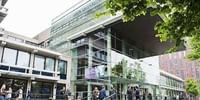The two-year master?s programme in Statistical Science offered by the provides you with a thorough introduction to the general philosophy and methodology of statistical modelling and data analysis.?
The programme consists of a core programme shared by all students, and specialisation specific courses, electives, an internship?or research project and master?s thesis. You can specialise in either life and behavioural sciences, where the emphasis is on the application in multidisciplinary environments, or in data sciences where you focus more on data mining, pattern recognition and deep learning.
Overview of the programme
- Data Science for Statistical Science:?This specialisation equips students with a broad basis in statistics combined with state-of-the-art knowledge in Data Science through collaboration between the Mathematical Institute and the Leiden Institute of Advanced Computer Science.
- Statistical Science: This specialisation equips students with a broad basis in statistics, discussing state-of-the-art statistical techniques and their application in fields such as bioinformatics, psychometrics, epidemiology and genetics.
Why study Statistical Sciences for the Life and Behavioural Sciences at Leiden University?
- Each specialisation offers you a unique combination of knowledge and expertise. These allow for a thorough preparation for a career?as a data scientist, researcher or statistician anywhere.
- Job perspectives after graduation are great: statisticians and data scientists are highly sought after in various industries such as academia, marketing, banking, government, official statistics, healthcare, bioinformatics and more.
- The Statistical Science programme is a collaborative effort. Four Leiden University Institutes closely collaborate with top research institutes such as Wageningen UR and VUMC, which means that your education is provided by experts in their respective fields.
Careers
With a Master of Science in Statistical Sciences you have good job perspectives: statisticians are highly sought after in various industries such as marketing, banking, government, sports retail and healthcare.
After graduation you have obtained a thorough knowledge of statistical methods and research designs as used in a broad range of empirical research. You have also developed practical skills such as statistical programming, statistical consultation, and written and oral communication of research results. You will be able to carry out research in the field of quantitative methods for the life sciences and the behavioural sciences.?
The Data Science specialisation adds skills more focussed on computer science. After graduation you will be able to advise substantive researchers on methodological and statistical issues, and many of them will be expected to continue in a PhD programme.










